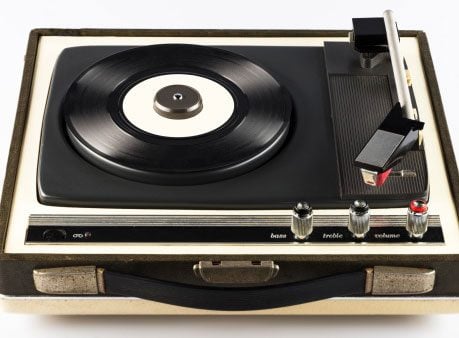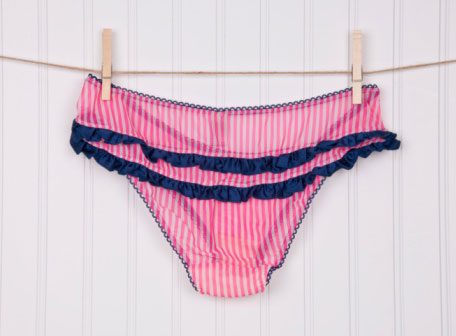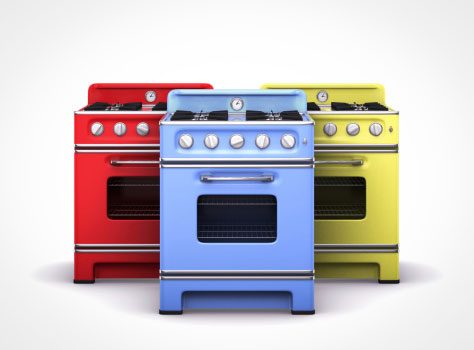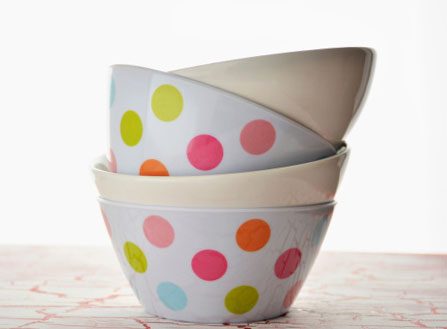
DO Prep Your Clothes
You’ve thoroughly cleaned out your closets and drawers, and have a mountain of clothing waiting to be donated. Before you bag up these pieces, inspect each one to ensure that they’re in good condition and ready to be owned by someone else. Go through each pocket to liberate any tucked away valuables, or trash. Make sure all buttons are accounted for, and that you can’t see any stains, rips, or damage. Wash the items in a fragrance-free product, so they’re fresh and ready for their new owner. As a final step once the items are dry – fold each piece neatly before packing them in a bag or box for donation.

DON’T Donate Damaged Items
The number one rule of donating your stuff is to make sure that it’s in good, useable condition. Don’t pass along clothes or furniture with rips or stains, chipped dishes, books that are missing pages, or games with lost pieces. Nobody wants to inherit your damaged belongings. Find a local company that will recycle these items instead.

DO Donate to Entertain
Entertainment tastes can change. If you’re overloaded with books (both hardback and paperback), video games, DVDs, CDs, records, magazines, audiotapes, and computer software that no longer hold your interest, Value Village will gladly take them off your hands. Got an old DVD player, VCR, radio, stereo or speakers that need to go? They’re all acceptable items for donation, too.

DON’T Even Think of Donating These Items
With a little common sense it’s easy to figure out items that are ideal for donation. But unfortunately some people will discard the contents of their home without a second thought. As a gentle reminder, it’s never a good idea to donate car parts, flammable products (including cans of paint, cleaning supplies), hazardous waste, construction materials (such as left over lumber, roof shingles), weapons, or explosives.

DO Donate Clothing
Men’s, women’s, children’s clothing and shoes are all welcome as donations. Add in some scarves, hats, nylons, socks, ties, and accessories such as purses, wallets, jewellery and belts, and your entire wardrobe can have a second life with a new owner. Value Village will even accept donations of clean underwear.

DON’T Donate Large Appliances
Major appliances such as stoves, refrigerators, freezers, washers and dryers typically reside on the ‘do not donate’ list due to health and safety reasons. All items accepted for donation must be thoroughly clean and in good working order. With secondhand appliances, it can be difficult to guarantee that they fit the bill. Instead of donating an unwanted large appliance, call your local trash collection company and arrange for their safe disposal.

DO Donate More Than Just Clothes
Clothes aren’t the only household items that can be donated. Stuffed animals, framed pictures, unused candles, small power tools, sports equipment, ornaments, baskets, blenders, dishes, glassware, utensils, silverware, pots and pans, curtains, blankets, toasters, mixers, pillows, towels, bed sheets, bikes, and exercise equipment are much sought after donations – just make sure that they’re in good condition.

DON’T Donate Recalled Items
Every so often a product recall hits the news headlines. Highchairs, toys, holiday lights for Christmas trees – the list of recalled items due to safety concerns is endless. Never donate recalled items! A dangerous product should be thrown away (in an environmentally-friendly way, of course), and not passed on to an unsuspecting person. Think of the well being of others before dropping off something that’s viewed as a safety hazard in your own home.

DO Donate Food to the Right Organizations
Food donations are always in need, however, they won’t help anyone if they’re not taken to the right place. Organizations such as Value Village that accept clothing, and household items typically don’t accept donations of food. To make sure that your non-perishable food items are distributed to families and individuals who need them the most, visit your local food bank, or fire hall. They’ll gladly take your food donations year-round.

DON’T Off-Load Beds, Sleeper Sofas and the Like
Most furniture items including tables (coffee, dining, computer varieties), sofas, bookcases, lamps, chairs, dressers, entertainment units, hutches, footstools, patio sets, and recliners are fine to donate. But if you’re looking to off-load a sleeper sofa, box spring, or mattress, you’ll have to be careful. These sleep-related furniture items aren’t accepted for donations – and with the growing problem of bed bug infestations from secondhand mattresses, can you blame them?